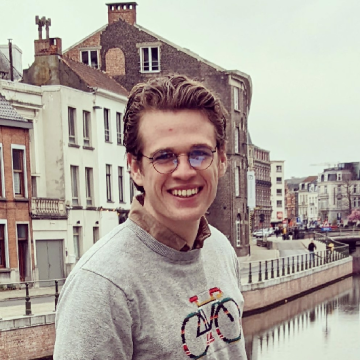Tamas Trombitas

Doctoral student - Translational Oncogenomics & Bio-Informatics, VIB-UGent Center for Medical Biotechnology, Cancer Research Institute Ghent, UGent Department of Biomolecular Medicine
Principal investigator: prof. Katleen De Preter (PhD)
Research focus
Current diagnostic methods fail to give conclusive result for 3-5% of cancer patients. This is because, in these cases, the tissue-of-origin cannot be determined in the metastatic cancer (i.e., a cancer that has started from one and spread to another part of the body).
In other words, these patients have Cancer of Unknown Primary (CUP). The tumour at the original location of the body (primary tissue) has the same type of cancer cells than the spread (metastatic) cancer.
If we could identify the issue of origin and determine the specific type of cancer, we could overcome limitations of the chemotherapy by personalising the treatment options and this way, improve the currently poor survival of metastatic cancer. There has been evidence shown in the scientific literature that DNA methylation pattern (i.e., modifications on the DNA) can serve as a ‘molecular fingerprint’ or identification marker to classify tumour types. However, to acquire samples of the tumour DNA, biopsy is often applied. To avoid this invasive procedure, the circulating cell-free DNA (cfDNA) in blood can be exploited. That is, only a minimally invasive liquid biopsy is necessary to access the required cfDNA sample from the blood plasma. This, combined with the so called reduced representation bisulfite sequencing (RRBS), enables for the cost-effective determination of the methylation pattern of the cfDNA (cfRRBS).
With this novel approach, we hope to be able to detect these molecular fingerprints of the CUPs and identify the primary source of the cancer. This research would not only contribute to better and more sustainable diagnostics (and thus, improved health of patients) but also would help general understanding of epigenetic regulation in cancer development.
Contact & links
- Lab address: VIB Center for Medical Biotechnology
UGent Department of Biomolecular Medicine
Technologiepark-Zwijnaarde 75 - 9052 Gent – BELGIUM - De Preter lab
- Katleen De Preter
- Translational Oncogenomics and Bioinformatics Lab
- VIB-UGent Center for Medical Biotechnology (CMB)
- Tamas Trombitas is interested to receive invitations for presentations or talks